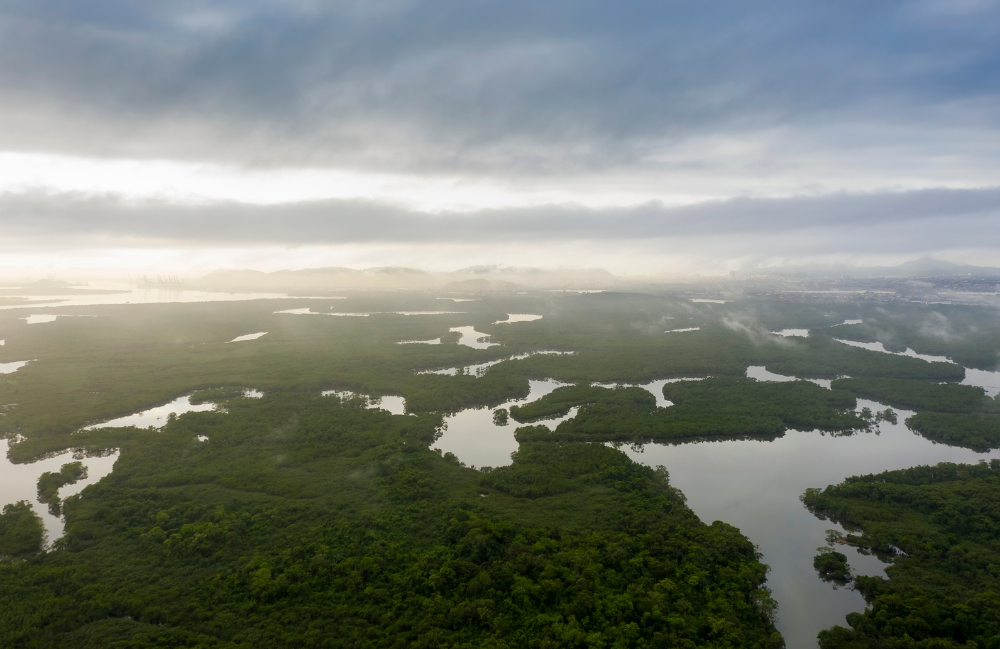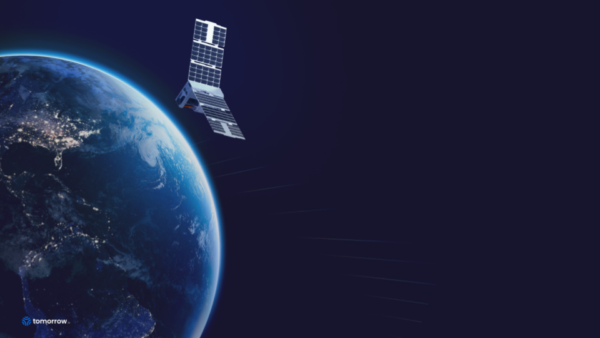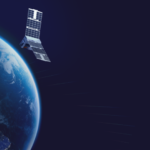The recent floods in Brazil’s Rio Grande do Sul state have left an indelible mark on the region, displacing over 538,000 people and causing widespread damage. As a senior meteorologist at Tomorrow.io, I have been closely monitoring the situation and analyzing how our cutting-edge resilience platform, backed by our growing satellite constellation, could have mitigated the impact of this disaster.
At Tomorrow.io, we’ve developed a proprietary satellite-based rainfall retrieval system that enables us to accurately capture the extent and severity of rainfall. This advanced technology allowed us to predict intense precipitation rates and substantial accumulation over a short period, creating ideal conditions for flash flooding in Rio Grande do Sul.
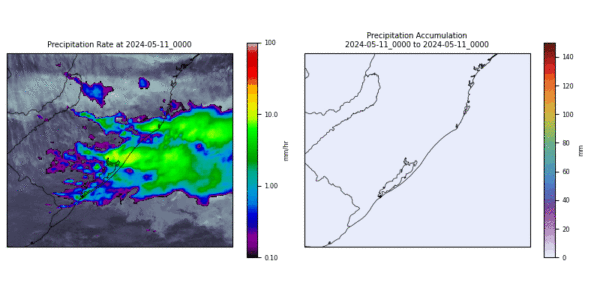
Retrieved precipitation rate and accumulation from GOES-16
However, not all observing platforms methods were able to accurately capture the severity of the event. In contrast, traditional ground-based radars in the region failed to fully capture the event due to gaps in coverage. Such limitations underscore the need to leverage advanced satellite-based technologies for a comprehensive understanding of weather events.

Examining the time series data at Porto Alegre, one of the most affected areas, further illustrates the accuracy of Tomorrow.io’s satellite-based rainfall retrieval. The timeseries illustrates that the rainfall came in three distinct phases with total rainfall exceeding 150 mm over 36 hours.
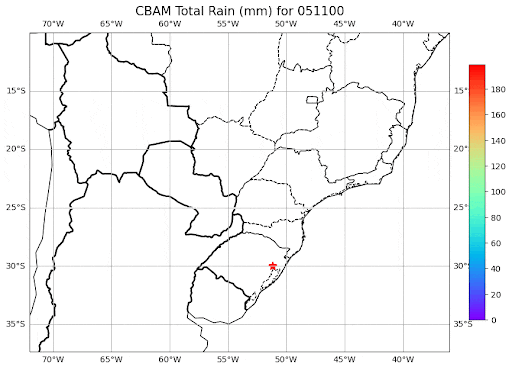
Tomorrow.io CBAM spatial precipitation accumulation at Porto Alegre
The spatial precipitation accumulation at Porto Alegre aligned well with the satellite retrievals, demonstrating the effectiveness of our forecasting tools. The forecast, initialized at 00 UTC on May 11, 2024, provided valuable advance warning of the impending deluge.
Additionally, Tomorrow.io’s Flood Index product successfully captured the severity of the event. The upgraded version (4.0), set for release in June 2024, shows even more promising results compared to the current version (3.1).
The impact of advanced weather intelligence extends beyond disaster mitigation. For businesses operating in Brazil, like Azul Airlines who use Tomorrow.io’s platform, accurate and timely weather insights are crucial for adapting to changing conditions and ensuring safe and efficient operations. With over 150 locations across the country, Azul relies on Tomorrow.io’s resilience platform to predict and prepare for adverse weather events.
Eduardo Pongeluppe, Azul’s Flight Dispatch Manager, highlights the value of Tomorrow.io’s insights for regional operators:
“When we’re informed of adverse weather, we check all the aircraft arriving at the same time, and we create an alternate plan for all other airports to make sure we can attend to customers, aircraft, and crew. This is very important and came with Tomorrow.io.”
The events in Rio Grande do Sul serve as a stark reminder of the far-reaching impacts of climate change. As extreme weather events become more frequent and intense, it is imperative that we invest in advanced weather forecasting technologies and develop robust climate resilience strategies. By working together and leveraging the most advanced weather intelligence available, we can build a future where communities and businesses are better prepared to withstand the challenges posed by a changing climate.
As we reflect on the tragic events in Rio Grande do Sul, let us remember the communities forever changed by this devastating event and recommit ourselves to the urgent work of building a more resilient future for all.

